Proper nutrition of a pregnant woman is a guarantee of her child's health, because it determines in many respects certain parameters of fetal development on eachstage of its growth. The primary importance is the amount of protein that enters the body of the child with the mother's food, because protein is the main building material for its rapidly developing organism.
Some products that can cause obvious damage to health( both mother and her baby) should be categorically excluded from the diet of a pregnant woman.
To find out which foods are harmful in pregnancy:
When planning the proper nutrition of pregnant women, dietitians take into account one important physiological feature: depending on the period of pregnancy, the mother organism needs different nutrients and trace elements.
During each trimester of pregnancy, some adjustments are made in the menu.
- The nutrition of the expectant mother, who is at an early pregnancy, should be balanced and contains the usual set of microelements, minerals and vitamins . This is explained by the fact that despite the laying of all the most important organs and systems, the size of the fetus is still very small and the usual nutrition is quite capable of providing both the mother and her child with the necessary amount of calories and nutrients.At the first stage, the nutrition of a pregnant woman is practically no different from that of an average healthy woman who does not expect a child.
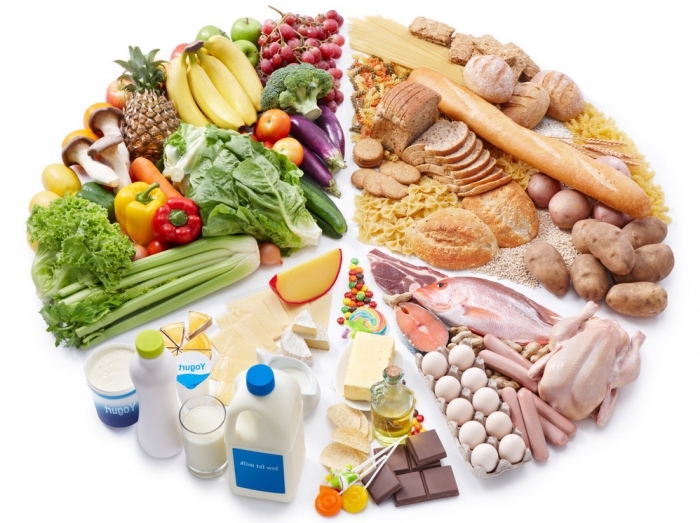 Of course, you need to eat food with enough calcium.
Of course, you need to eat food with enough calcium. - The second trimester of pregnancy is characterized by active growth of the fetus, which requires a huge amount of building material - protein. The proper nutrition of a pregnant woman in the second trimester should contain an increased amount of protein.
- In the last trimester of pregnancy in the child's body continues the formation of the nervous system, the growth of the skeleton and the development of internal organs, so the proper nutrition of the future mother should include a significant amount of trace elements, vitamins and minerals. In the third trimester, calcium is especially important for normal bone growth.
Thus, the nutrition of pregnant women should take into account the period of pregnancy, since differences in the diet at its different stages are due to the physiological needs of fetal development.
Pregnant feeding regimen
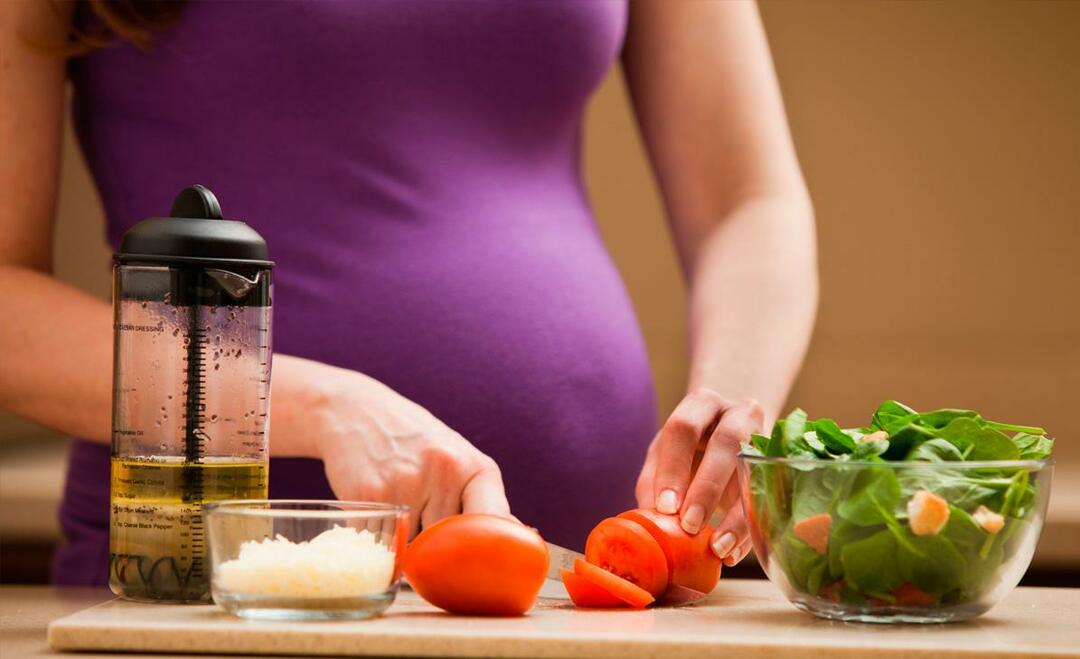
In the first three to four months of pregnancy, a woman can adhere to a four-time diet. The calorie balance should look like this:
- , the nutritional value of the first breakfast should be 30% of the daily caloric intake, the
- caloric value of the second breakfast is 15%, the
- should be the most dense lunch: it accounts for 35%, the
- supper nutrition should be 20%.
This is necessary to ensure that the overcrowded stomach does not exert pressure on the fetus. Therefore, to leave the table better with a feeling of mild hunger, without a feeling of heaviness in the stomach.
Foods consumed throughout the day should be distributed correctly. For breakfast and lunch, you need to eat protein foods: meat, fish and eggs, because they are absorbed for a long time and have an exciting effect on the receptors of the nervous system. For dinner, it is better to prepare vegetable and dairy dishes.
If the feeling of hunger seems unbearable, you can eat an apple, a pear or pamper yourself with a glass of yogurt or milk.
As regular emptying of the intestines is of great importance for the health of the future mother and her baby, in the ration of pregnant women should include products that stimulate his activity:
- different types of bread from wholemeal flour or with bran,
- fresh carrots,
- porridge from buckwheat, oatmealflakes, millet and perlovki,
- dried fruits, apples.
It is useful to drink fruit juices with pulp. Containing a large amount of coarse plant fiber, they release the maternal organism from the products of incomplete oxidation.
What should be the food of the pregnant woman to not get better?
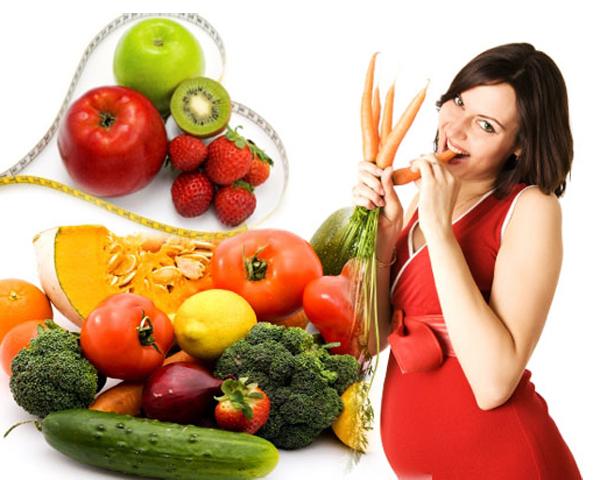
The correct diet of pregnant women should be based on the following principles:
- The nutrition of a pregnant woman should be divided: it should be eaten often, but little by little, and sit at the dinner table only when she really feels hungry, not to "seize" a bad mood andnot from idleness.
- A pregnant woman should give preference to food steamed, as well as by cooking, quenching or baking.
- To not get well, a pregnant woman should learn how to count calories. Caloric content of her diet in the first trimester of pregnancy should be at least 2000 calories. In each subsequent trimester, you should add 500 more calories to this indicator, bringing it to 3000 calories. Calorie tables of products in a variety are placed on the Internet.
Limited use of sausages is permitted.
- To avoid the formation of edema, a pregnant woman should limit the use of salt, which has the ability to retain fluid inside the body.
- Great importance should be attached to more thorough chewing of food: dozens of times chewing each piece, the pregnant woman simultaneously promotes and improves digestion, and obtains more nutrients.
- An exception can only be made if there is no possibility of receiving any other food. If it is a question of choosing between hunger and fast food, it is better, of course, to choose fast food, since the future mother should not starve. To exclude the possibility of such a dilemma, before leaving the pregnant woman's house, it is always necessary to grab a fruit or a couple of sandwiches.
- Proper nutrition is unthinkable without following the proper drinking regimen of . Drink should be throughout the day, gradually sipping from a small bottle, which is always recommended to have at hand. The optimal amount of liquid, drunk during the day - not less than 2000 ml.A pregnant woman should stop using colored carbonated drinks, giving preference to drinking water, tea, natural vegetable and fruit juices.
Proper nutrition of a pregnant woman in the first trimester
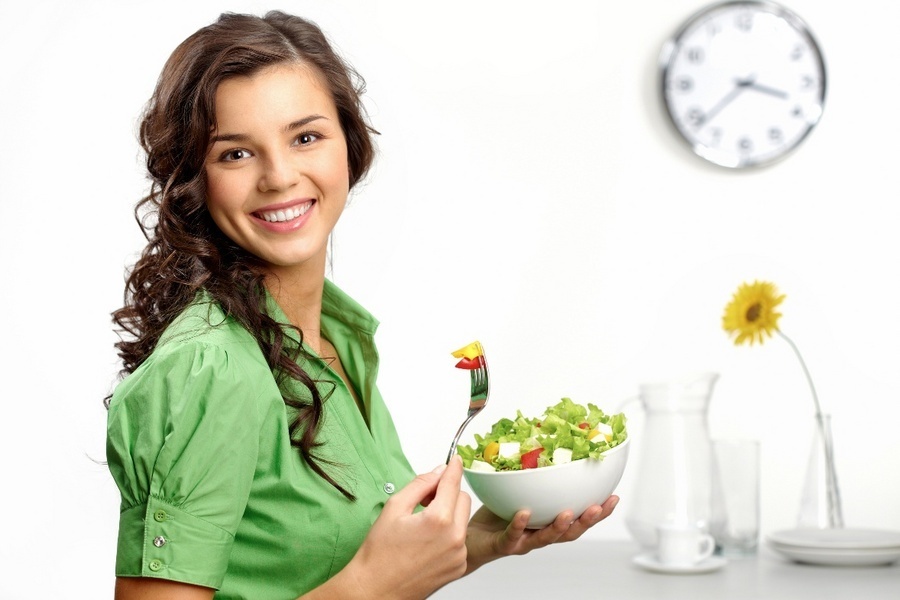
Proper nutrition of pregnant women in the first four weeks of fetal development should provide the baby with sufficient calcium , so the diet of the future mother should include the products containing it:
- milk and dairy products,
- green vegetables( especially usefulcabbage broccoli),
- fruit juices.
For the successful development of the placenta and the fetal membrane, manganese contained in:
- pork,
- turkey,
- eggs,
- oatmeal,
- spinach, carrots and bananas is also needed.
Since the fifth week pregnant women sometimes begin to experience toxicosis. Its manifestations can be greatly facilitated if, only waking up, the future mother will eat a cracker or unsweetened cracker, drinking them with a sip of water. Do it right in bed.
The daily menu should include the most light products: vegetables and fruits. Instead of heavy protein food( eggs and meat), the expectant mother can temporarily switch to nuts, soybeans, legumes, and replace milk with cheese and yoghurt.
At this stage, the use of a small number of wet apples, sauerkraut and pickled cucumbers can arouse appetite, so it's not advisable to completely refuse using them in toxicosis.
To improve the intestinal function of and meet the need for plant fiber, the nutrition of a pregnant woman should include:
- beet,
- kefir,
- prunes and raisins.
- whole-grain cereals and bread from coarse-ground flour.
During the first trimester of pregnancy, the expectant mother should be sensitive to the needs of her own organism. The so-called "whims" is not a whim, but a testament to the lack of certain substances in the body, so it is reasonable to indulge them in reasonable limits.
When leaving the house, the pregnant woman can take with herself an apple, lemon and a small bottle of drinking water( without gas): they will help to cope with a fit of faintness.
Proper nutrition of a pregnant woman in the 2nd trimester
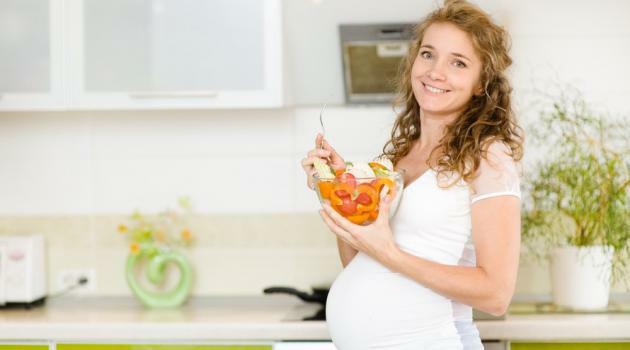
Nutrition of pregnant women during this period should be characterized by an increase in the daily calorie rate, because the child's actively developing body begins to require a large number of proteins.
Timely struggle against obesity is important because it is the prevention of diabetes maternity.
Nutrition of expectant mothers should be aimed at restoring iron reserves in her body, which by that time was significantly depleted. Therefore, in the diet of this period must be:
- beef liver,
- meat,
- tomato juice
- buckwheat.
The vitamin B9 ( folic acid) plays an important role in the successful course of pregnancy, which is found in:
- greens of lettuce, spinach, parsley,
- bean pods and asparagus,
- green peas,
- citrus fruits( and juices from them) and avocado.
Therefore, this plant food must be present in the menu of the pregnant woman.
At the end of the second trimester of pregnancy, the child's hearing and vision organs are actively developing, requiring a large amount of beta-carotene and of vitamin A .These substances are rich:
- carrots,
- yellow Bulgarian pepper
- white cabbage.
Eating a pregnant woman is unthinkable without these vegetables. It should only be recalled that the absorption of vitamin A occurs only in the presence of fats, so a grated carrot, for example, a pregnant woman should eat with sour cream or vegetable oil.
Proper nutrition of a pregnant woman in the 3rd trimester
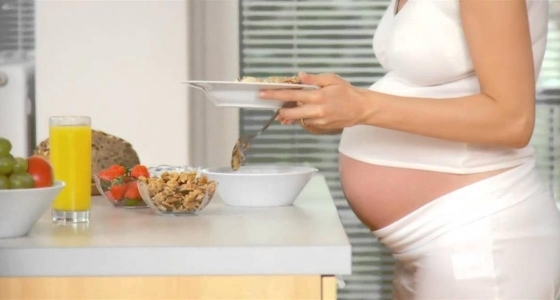
The correct diet for pregnant women in the last period of gestation is able to prevent the development of late toxicosis - a severe condition characterized by increased blood pressure, decreased kidney function due to this edema and the presence of protein in the urine.
Feeding expectant mothers at this stage should include exclusively useful products of :
- fish,
- meat,
- whole grains cereals.
About buns and pasta for a while to forget. The nutrition of women who are on the last days of pregnancy should also completely exclude canned, salted, spicy, smoked, fatty and fried foods.
To prevent extremely unwanted constipation, the mother's food should contain figs, sour-milk products, steamed dried fruits.
For relief of heartburn , often accompanying this period of pregnancy, the following dishes should be included in the nutrition of expectant mothers:
- boiled poultry,
- fish and meat,
- steamed omelettes,
- boiled soft eggs,
- , fruits and vegetables that have been heat treated.
- dried slices of white bread,
- low-fat cottage cheese.
In the eighth month of pregnancy, the child is actively growing bones and teeth, develops the brain, so the mother's diet should be foods that are high in calcium and fatty acids.
In the last weeks of pregnancy, the mother's nutrition should strengthen her body before giving birth, that's why there must be a large amount of carbohydrates contained in vegetables and various kinds of gruel: they should be the basis of the ration at this stage of bearing the baby.
Proper nutrition of a pregnant woman with pyelonephritis
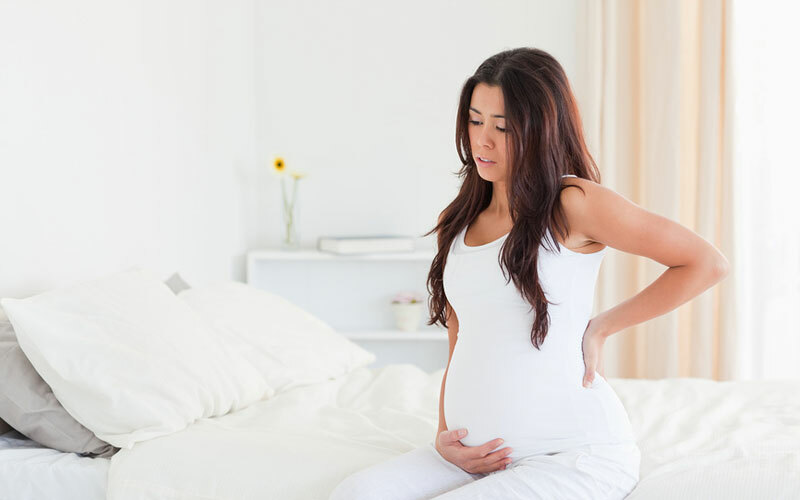
Pyelonephritis is often seen in pregnant women. This is a kidney disease caused by the penetration of pathogenic microflora in them. Treatment of pyelonephritis is accompanied by a special diet.
- Nutrition of pregnant women with detected pyelonephritis should include the use of all kinds of cereals, pasta, baked bread and dietary bread( without salt).The use of boiled sausage and lean varieties of unsalted ham is acceptable.
- low-fat fish, meat and poultry( fish and poultry skin),
- milk and sour milk products - whole milk, curdled milk and kefir, low-fat curd, low-fat yogurt and low-acid sour cream,
- fresh, boiled orbaked vegetables. Preference should be given to fresh tomatoes, cucumbers and carrots. Eggplant and zucchini are very useful.
- The most useful fruits for the proper nutrition of pregnant women suffering from pyelonephritis are pears, apples, plums and grapes, and gooseberries should be preferred to those who like berries.
- The preferred way to prepare meals for pregnant women with pyelonephritis is steaming and boiling.
- In the absence of edemas, drinking regimen is carried out in the same way as for healthy women, since pyelonephritis does not prevent the removal of fluid from the body of a future mother. Of the drinks the most useful is cranberry juice.
Find out what is useful for pregnant women:
Related videos:
 7:16
7:16  6:00
6:00 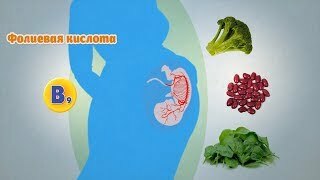 4:02
4:02 